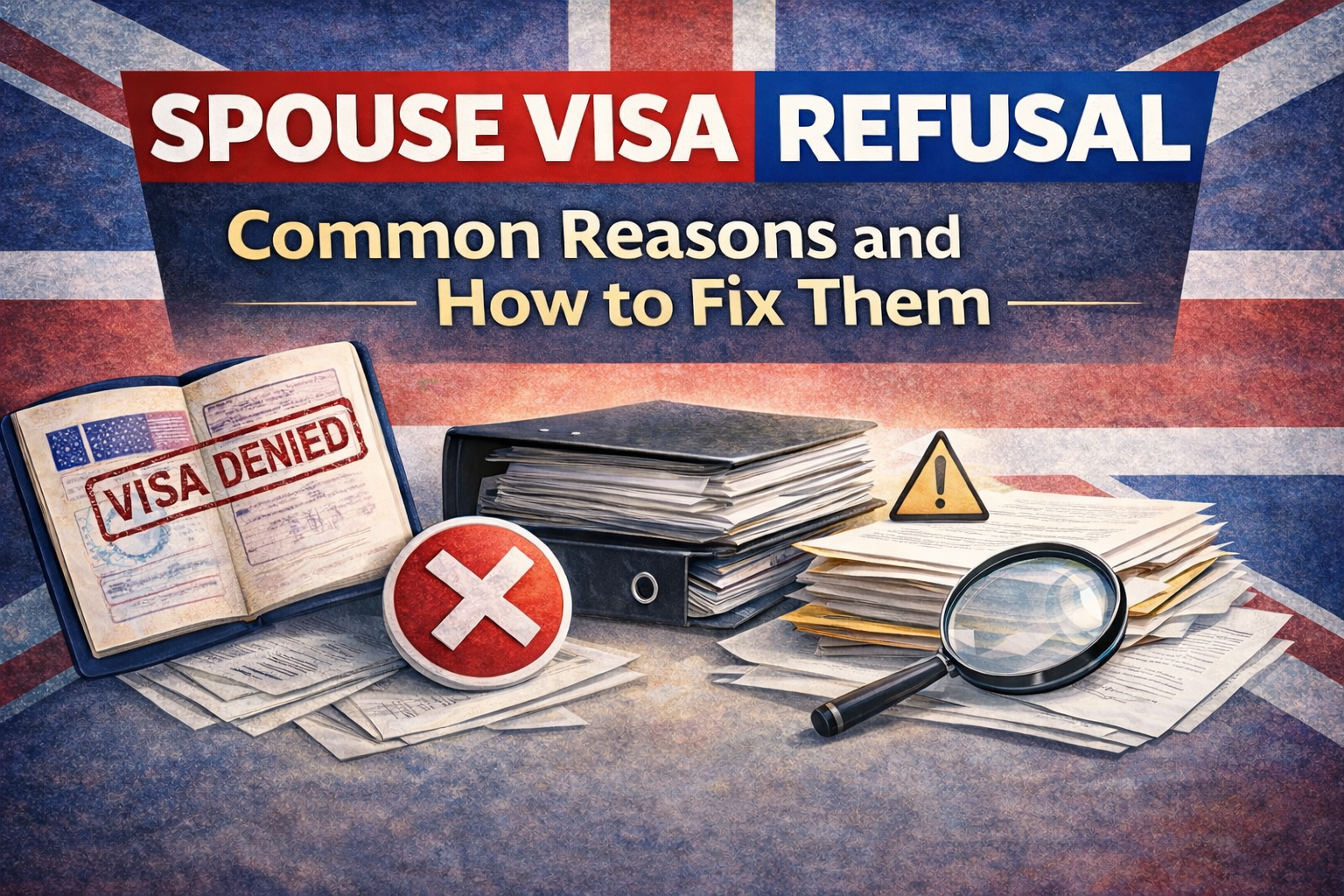Deportation is one of the most serious actions the UK government can take against a foreign national. Unlike removal or voluntary departure, deportation involves being forcibly sent out of the UK — often with long-term consequences for your immigration status. This guide explains the deportation process in 2025, who it applies to, what rights you have, and how legal support can help you challenge a deportation order.
What Is Deportation?
Under UK law, deportation refers to the act of expelling a foreign national from the UK. It typically applies to:
- Non-UK citizens convicted of a criminal offence
- Individuals deemed a threat to public safety
- Cases where it is deemed to be conducive to the public good
The legal basis for deportation is found under the Immigration Act 1971, as well as updates brought in by the Nationality and Borders Act 2022 and the UK Borders Act 2007.
Who Can Be Deported from the UK?
The Home Office may issue a deportation order if:
- You are a non-British citizen and have been convicted of a criminal offence with a prison sentence of 12 months or more
- You are a persistent offender or pose a serious risk to public safety
- Deportation is deemed conducive to the public good
In some cases, even those with Indefinite Leave to Remain (ILR) or refugee status may face deportation if the offence is serious enough.
Automatic Deportation Rules
Under the UK Borders Act 2007:
- Anyone sentenced to 12 months or more in prison must be considered for automatic deportation
- The Home Office has a legal duty to issue a deportation order unless an exemption applies
Exemptions include:
- If you were under 18 at the time of conviction
- If deportation would breach your human rights
- If you are an EU national and specific exceptions apply (transitional)
Difference Between Deportation and Removal
- Removal is used for individuals who breach immigration rules (e.g. overstaying or illegal entry)
- Deportation applies mainly to those with criminal convictions or where removal is deemed necessary for public safety
The Deportation Process
- Notice of Intent
- The Home Office informs you in writing that they are considering deportation.
- You are invited to submit reasons and evidence why you should not be deported (known as “representations”).
- Deportation Order
- If representations are unsuccessful, a deportation order is served.
- This invalidates any previous leave to remain you had in the UK.
- Appeal Rights
- You may have a right of appeal to the First-tier Tribunal (Immigration and Asylum Chamber).
- However, under 2025 rules, some appeals are non-suspensive, meaning deportation may proceed while the appeal is pending (particularly in national security or human rights-abuse cases).
- Detention and Removal
- You may be detained in an immigration removal centre (IRC) while arrangements are made.
- Removal flights can be scheduled within days if appeal rights are exhausted.
Rights of Individuals Facing Deportation
Even if you are facing deportation, you still have legal rights:
- The right to legal representation
- The right to appeal or apply for judicial review
- The right to apply for immigration bail
- The right to retain access to family courts if you have children in the UK
Challenging Deportation on Human Rights Grounds
Common grounds include:
- Right to family life (Article 8, ECHR): If you have British children or a long-term partner in the UK
- Risk of torture or inhuman treatment (Article 3, ECHR): If deportation would expose you to danger
- Medical grounds: If removal would significantly harm your physical or mental health
Evidence must be strong, up-to-date, and ideally supported by legal submissions.
Can You Be Deported with ILR or Refugee Status?
Yes — even those with Indefinite Leave to Remain or refugee status can be deported if:
- A serious criminal offence has occurred
- National security is at stake
- It is deemed proportionate and lawful under human rights laws
Revocation of ILR may occur prior to deportation.
Deportation of EU Nationals
Post-Brexit, EU nationals are no longer protected under free movement law. They can be deported:
- For serious or persistent offending
- If considered a threat to public security or policy
However, courts will still assess proportionality under human rights law.
Deportation and British Children or Family Ties
Deportation may be challenged if you have:
- A British citizen child living in the UK
- A British or settled partner
- Ongoing family court proceedings
The Home Office must consider the best interests of the child as a primary factor.
Recent Developments
- Increase in fast-track deportations for foreign national offenders
- Expansion of non-suspensive appeals for certain categories
- Rise in judicial review challenges against deportation decisions
How Solicitors Can Help
If you or someone you know is facing deportation, professional legal advice is essential. A solicitor can:
- Help prepare your defence based on human rights or family life
- Submit compelling evidence and legal arguments
- Represent you at appeal hearings or judicial review proceedings
- Apply for immigration bail to avoid detention
Final Thoughts
Deportation is life-altering — but it is not always final or automatic. With proper legal guidance, many individuals successfully challenge deportation orders and secure their right to remain in the UK.
If you’ve received a deportation notice or know someone who has, contact Hi Solicitors today. We can advise you on your rights, appeal routes, and the best course of action.





